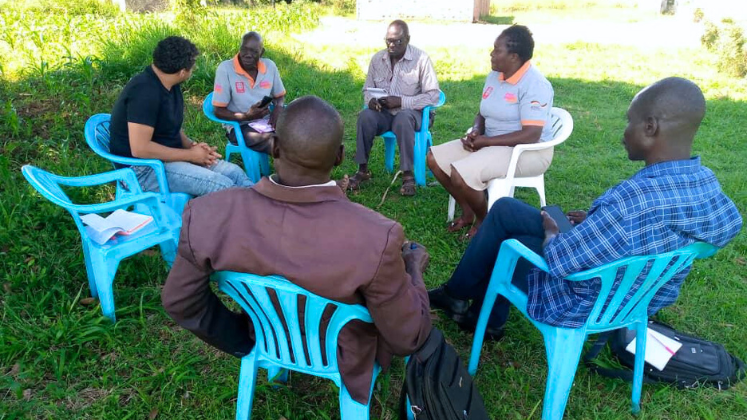 Researchers have repeatedly voiced their dissatisfaction with how the journals they publish in are used as a proxy for the evaluation of their work. However, those who wish to break free of this model fear negative consequences for their future funding and careers. Rebecca Lawrence emphasises the importance of addressing researchers’ recognition and reward structures, arguing it is time to move to a system that uses metrics and indicators that incentivise the types of behaviours that are good for research and researchers. The European Commission’s Open Science Policy Platform has published a series of recommendations on how this might be done, and encourages their adoption by all stakeholder communities across the research process.
Researchers have repeatedly voiced their dissatisfaction with how the journals they publish in are used as a proxy for the evaluation of their work. However, those who wish to break free of this model fear negative consequences for their future funding and careers. Rebecca Lawrence emphasises the importance of addressing researchers’ recognition and reward structures, arguing it is time to move to a system that uses metrics and indicators that incentivise the types of behaviours that are good for research and researchers. The European Commission’s Open Science Policy Platform has published a series of recommendations on how this might be done, and encourages their adoption by all stakeholder communities across the research process.
I have written before about the European Commission’s Open Science Policy Platform (OSPP), and our aims and areas of focus. Previously I focused on metrics and evaluation, and the need for incentives and associated recognition and rewards to both enable and encourage researchers to adopt more open practices for the benefit of research and society. This needs the buy-in of stakeholders across the spectrum. As Chair of the Next-Generation Metrics working group (previously named Altmetrics working group), whose recommendations are published today, I’d like to provide my personal view on the role the EC – and other funding agencies and research-performing institutions – could play in driving real action and change.
At F1000, we hear time and again from researchers keen to break with traditional publishing models, and from the proxies the journals they publish in provide for the evaluation of their work, but who fear negative consequences for their future funding and careers. At a debate on peer review in September, Meghan Larin, Postdoctoral Research Fellow at the Francis Crick Institute, spoke about the frustrations she and her peers face when trying to publish in the “right” journals to progress their careers. We also frequently hear from researchers across disciplines whose contributions to research include outputs beyond traditional article formats, such as data or software code, but who struggle to receive credit for those contributions.
At the same time, we see inertia among some cohorts of researchers who do not see the need to change the system and/or have little interest or engagement in thinking about how existing approaches can corrupt and distort science and damage the future of many – especially early-career – researchers.
 Image credit: Merits by Marion Doss. This work is licensed under a CC BY-SA 2.0 license.
Image credit: Merits by Marion Doss. This work is licensed under a CC BY-SA 2.0 license.
Without tackling incentives, recognition, and rewards structures, little will change despite the growing frustration of this generation of postdocs. While much discussion is often focused on rewarding open science behaviours (publishing open access, making your data FAIR, contributing to open peer review), this is not a means to an end in itself. Metrics and indicators that point to the quality, value, use, and potential impact of a research output are clearly of crucial importance. However, we need to move to a system that uses metrics and indicators that incentivise the types of behaviours that are good for research and researchers; that is what will benefit science more broadly.
The OSPP recommendations to the EC, which we hope the Commissioner and DG Research will embrace, cover seven priority areas and are currently being coordinated with the recommendations of the Rewards and Incentives, and Education and Skills working groups. These priorities are:
- to agree the specific behaviours we want to incentivise;
- to commission a study to propose guidelines for best practice and tools for research assessment;
- for research institutions and funders to make concrete statements of principles on appropriate uses of indicators and to run pilots of these new practices;
- to fund and build infrastructures to enable the use of open metrics;
- to ensure the use of persistent and standard identifiers;
- to ensure linking and standardising of metadata; and
- to establish a forum to drive these recommendations forward and ensure concrete actions are taken by all the stakeholders involved.
The EC are developing the European Open Science Cloud (EOSC) to bring together research data from across Europe and around the world. They also recently announced plans to create an open research publishing platform for their Framework Programme grantees. Key to the success of both of these major initiatives is change in how these researchers are incentivised and rewarded. Without this, researchers cannot change practices and adopt the use of these infrastructures of their own volition – they need a system in place that rewards them for doing what is best for research and for society while enabling them to access their next funding and build their careers.
This is an urgent task and I am pleased to see the level of agreement across major stakeholder groups (as represented on the OSPP) towards this crucial but ambitious goal. Key to success is collaboration – no one stakeholder community can do this alone. It is gratifying that there finally seems to be an active willingness across sectors to work together to make this change – as we know, changing culture is the most challenging aspect but the EC has a real opportunity as a major research funder to lead by example.
I hope the support displayed by OSPP members for these recommendations is echoed by the Commission itself and also adopted by the Member States. We all have a collective responsibility to drive these changes forward and start taking the concrete actions required to ensure a better future for the next generation of researchers.
This article gives the views of the authors, and not the position of the LSE Impact Blog, nor of the London School of Economics. Please review our comments policy if you have any concerns on posting a comment below.
About the author
Rebecca Lawrence is Managing Director of F1000. She is a member of the High-Level Advisory Group for the EU’s Open Science Policy Platform. She has been co-Chair of a number of working groups focussing on data and peer review for organisations including the Research Data Alliance (RDA), CASRAI and ORCID. She has worked in STM publishing for over 15 years, including for publishers such as Elsevier. She trained and qualified as a pharmacist, and holds a PhD in Pharmacology.








While I agree with many points, it would be helpful if F1000 and other publishers would also be more open about their lobbying efforts. Quid pro quo.
A few examples:
“to agree the specific behaviours we want to incentivise;”
Who is we?
“to commission a study to propose guidelines for best practice and tools for research assessment;”
Who is doing such a study?
“to fund and build infrastructures to enable the use of open metrics;”
Now that the question turns concretely toward money, how is F1000 involved?